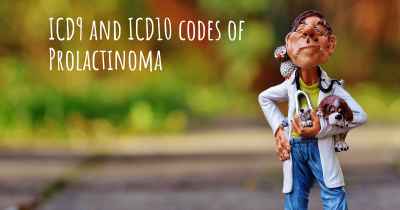What is the life expectancy of someone with Prolactinoma?
Life expectancy of people with Prolactinoma and recent progresses and researches in Prolactinoma

Prolactinoma is a benign tumor of the pituitary gland that causes excessive production of the hormone prolactin. While it can significantly impact a person's quality of life, it is generally a treatable condition with a good prognosis.
The life expectancy of someone with prolactinoma is typically normal or near-normal, as long as the tumor is properly managed and treated. With appropriate medical interventions, such as medication or surgery, prolactinoma can be controlled effectively, reducing symptoms and restoring hormonal balance.
Regular monitoring and follow-up with healthcare professionals are crucial to ensure the tumor remains under control and to address any potential complications. By adhering to the recommended treatment plan, individuals with prolactinoma can lead fulfilling lives with a normal life expectancy.
Prolactinoma is a benign tumor of the pituitary gland that causes excessive production of the hormone prolactin. This condition primarily affects women, but men can also be affected. Prolactinoma is the most common type of pituitary tumor, accounting for approximately 40% of all pituitary tumors.
The life expectancy of someone with prolactinoma is generally not affected by the condition itself. Prolactinomas are usually slow-growing tumors and are rarely life-threatening. However, the symptoms and complications associated with prolactinoma can impact a person's quality of life and may require long-term management.
Medical Treatment:
Treatment for prolactinoma aims to reduce prolactin levels, shrink the tumor, and alleviate symptoms. The most common treatment approach is medication, typically with dopamine agonists such as cabergoline or bromocriptine. These medications effectively lower prolactin levels and often lead to tumor shrinkage. With proper treatment, most people with prolactinoma can achieve normal prolactin levels and experience symptom relief.
Impact on Life Expectancy:
While prolactinoma itself does not significantly affect life expectancy, the associated symptoms and complications can have an impact. If left untreated or poorly managed, prolactinoma can lead to various health issues that may indirectly affect life expectancy. These complications may include:
- Infertility: Prolactinoma can disrupt normal menstrual cycles in women and cause infertility. However, with appropriate treatment, fertility can often be restored.
- Osteoporosis: High levels of prolactin can interfere with bone health and increase the risk of osteoporosis. Regular monitoring and appropriate treatment can help mitigate this risk.
- Visual disturbances: Large prolactinomas can grow and compress the optic nerves, leading to visual field defects or even loss of vision. Early detection and treatment are crucial to prevent permanent visual impairment.
- Headaches: Prolactinomas can cause chronic headaches, which can significantly impact a person's quality of life. Proper management of the tumor and associated symptoms can help alleviate headaches.
- Psychological effects: Living with a chronic condition like prolactinoma can have psychological implications, including anxiety, depression, and stress. It is important to address these aspects and provide appropriate support.
Regular Monitoring and Management:
Given the potential complications associated with prolactinoma, regular monitoring and management are essential. This typically involves periodic blood tests to assess prolactin levels, imaging studies to monitor tumor size, and regular follow-ups with an endocrinologist or neurologist.
Conclusion:
In summary, the life expectancy of someone with prolactinoma is generally not affected by the condition itself. With appropriate treatment and management, most people with prolactinoma can lead normal lives and have a normal life expectancy. However, it is important to address the associated symptoms and complications to maintain a good quality of life. Regular monitoring, adherence to treatment, and seeking appropriate medical care are crucial for optimal outcomes.








